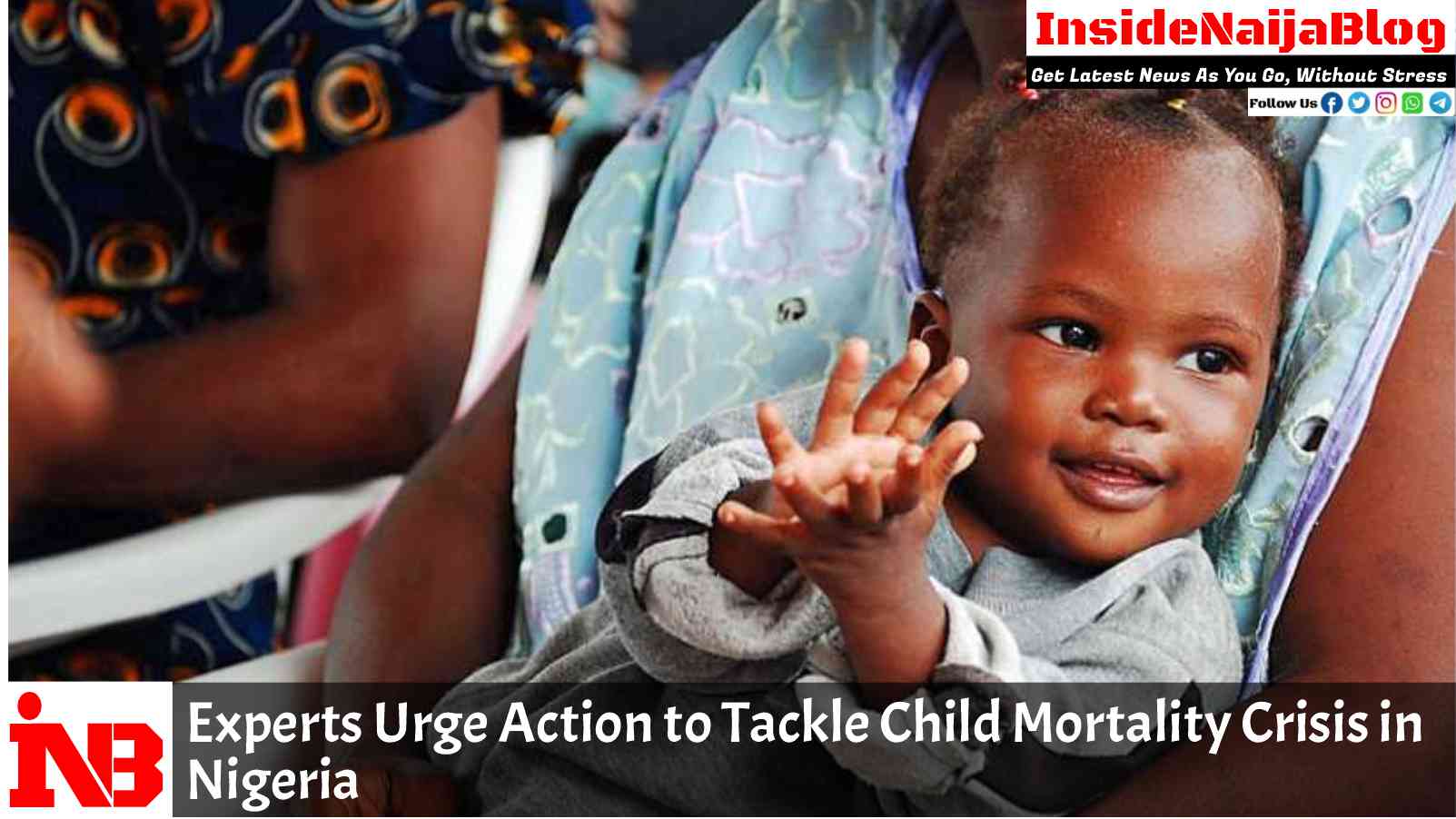Health experts at the Integrated Management of Childhood Illness (IMCI) Summit have raised urgent concerns regarding the high rates of child mortality in Nigeria. The latest Nigeria Demographic Health Survey (NDHS) for 2023/2024 reveals that child mortality remains alarmingly high at 110 deaths per 1,000 live births. This statistic highlights the pressing need for comprehensive action to address the underlying causes of child mortality and improve healthcare delivery across the country.
The summit, held in Lagos, gathered government officials, healthcare professionals, and international organizations to discuss strategies for reducing preventable child deaths. According to the NDHS, Nigeria’s infant mortality rate stands at 63 deaths per 1,000 live births, while neonatal mortality is recorded at 41 per 1,000 live births. Dr. Omokore Oluseyi, Head of the Child Survival Branch at the Federal Ministry of Health, presented a compelling case for the urgent development of a National Child Survival Action Plan. He emphasized that Nigeria is among 54 target countries worldwide needing immediate, evidence-based actions to address child survival challenges to meet the Sustainable Development Goal (SDG) 3 target of reducing child mortality to 25 deaths per 1,000 live births.
Dr. Oluseyi lamented that Nigeria is currently reducing its under-five mortality rate by only 2.6 percent annually, with malnutrition contributing to 50 percent of deaths among under-five children. He stressed the need for a comprehensive approach to tackle three major child killer diseases: malaria, pneumonia, and diarrhoea, while also addressing malnutrition. The IMCI strategy focuses on training healthcare workers to manage these conditions simultaneously, as many children present overlapping symptoms.
Despite ongoing efforts, child mortality rates remain high, especially in rural areas. The Ministry of Health has initiated various strategies, including community-based programs aimed at identifying and treating malnourished and unimmunized children. The National Child Survival Action Plan seeks to strengthen healthcare delivery at the grassroots level, ensuring access to essential vaccinations and treatments.
Dr. Osita Okonkwo, Country Director of Nutrition International, echoed the need for urgent action to combat childhood mortality in Nigeria. He stressed the effectiveness of the IMCI strategy but noted that political and social factors hinder its implementation. Okonkwo advocated for enhanced collaboration among stakeholders, evaluation of current initiatives, and sharing best practices. He highlighted that simple interventions, such as oral rehydration therapy (ORS) and timely antibiotics, could prevent a significant number of childhood deaths.
Public health expert Prof. Adedeji Onayade described the situation as “pathetic,” noting that despite some progress, child mortality rates remain stagnant. He pointed out that approximately one in eight children in Nigeria die before reaching the age of five. He called for training health workers through initiatives like IMCI to improve health outcomes across the country.
Prof. Wammanda Robinson from the Ahmadu Bello University Teaching Hospital emphasized that the newborn period remains critical, with high mortality rates persisting. He cited a lack of political will, inadequate funding, and poor infrastructure as key factors contributing to the ongoing challenges in child health. The economic climate exacerbates the problem, with many families unable to afford healthcare expenses, leading to out-of-pocket payments that place additional burdens on vulnerable populations.
Mr. Ogeh Azure from the Department of Health Planning, Research, and Statistics at the Federal Ministry of Health acknowledged that the 2023/2024 NDHS indicates some progress in nutrition but noted that challenges such as security issues and the impact of the COVID-19 pandemic hinder advancements. He highlighted efforts to conduct periodic data quality assessments and improve healthcare reporting practices.
The summit underscored the collective responsibility to address the pressing issue of child mortality in Nigeria. By prioritizing healthcare access and implementing effective strategies, stakeholders can work towards ensuring that no child is left behind in the quest for a healthier future.


